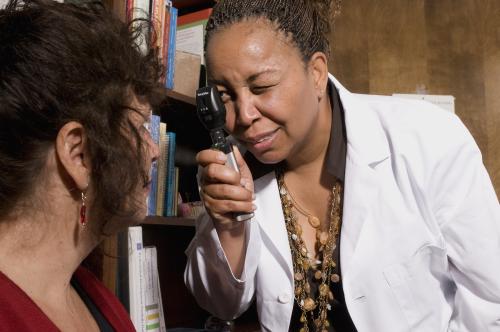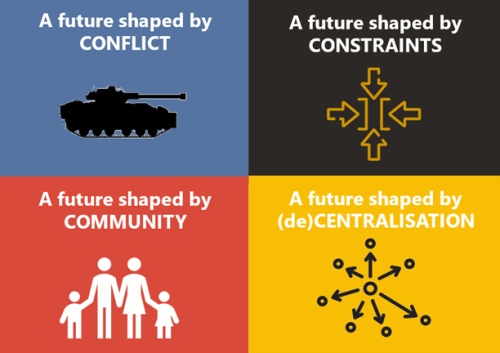
How data makes things worse
All light brings shade. My list of ‘changes that have been all upside and no downside’ is short and debatable.

Menopause and the NHS workforce
The impact of the menopause on the NHS workforce. The Strategy Unit and Health Economics Unit report on their mixed methods findings.

MDSN: AI tools for evidence synthesis
With the advancing sophistication of AI and automation-based tools, we explore their use for evidence synthesis.

Rural Health Inequalities
The UK Government (2016) define rural areas as those which

Leadership training and support for organisational development: an offer from the Strategy Unit
The Strategy Unit has long been known for the quality of its analytical work, and the clear, critical thi

Review of Ophthalmic Managed Clinical Networks (MCNs) in Staffordshire and Shropshire
The aim of the MCNs is to bring together primary care optometrists with local ophthalmologists within a geographical area. This is a review Strategy Unit were commissioned by NHS England to work with a medical retina MCN in Shropshire, Telford and Wrekin and a glaucoma MCN in Staffordshire and Stoke on Trent, to review their work so far and look at the opportunities the networks present.

Learning about what works in urgent community response
The initial report from the national urgent community response (UCR) evaluation, along with an economic modelling tool to help service providers and systems understand the impact of UCR, is now available.

Exploring MSK Patient Pathways – Produced by Healthier Futures, Black Country
Exploring MSK Patient Pathways Patient Experiences: Facilitators and Barriers. And The Way Forward Full ReportJune 2023

Exploring the Edge of Tomorrow, Today
Exploring the critical building blocks for a resilient social care system in 2035 with the West Midlands Association of Directors of Adult Social Services (WM-ADASS).

What’s philosophy got to do with evidence reviews?
Ever wondered how to make better use of evidence in decision-making? Follow our latest blog series to find out more about how our Evidence and Knowledge Mobilisation team can help you to make sense of and use evidence from research and practice.

Diagnosing harms?
All medicines are poisons. Everything that cures could kill if administered in the wrong doses, to the wrong people, at the wrong times, in the wrong ways.

Inclusive Elective Care Recovery
These case studies present the key features and learning from local initiatives which championed inclusive approaches to elective care recovery.

How is growth in diagnostic testing affecting the hospital system?
Diagnostic services, such as medical imaging, endoscopy, and pathology, have grown substantially in recent years and at a faster rate than most other healthcare services. Increased diagnostic testing brings benefits to patients, but rapid growth of this service area within a complex, adaptive system such as the NHS is likely to have had unintended consequences. Midlands ICBs wanted to understand the impact of diagnostic growth on hospital services.

Could a peer review methodology help drive continual learning within and across local systems?
In this blog Karen describes how peer review methodologies are being used to support learning in Long COVID services.
Insight to action blogs - a series of blogs from Lucy Hawkins
“Solving complex problems requires new approaches to problem solving…To do this, organisations and communities need to become skilled in mobilising

Decision Making Blog #8: Infinity-shaped debate
I’m argumentative.

Decision Making Blog #7: Should we 'go with the gut'? Yes, but...
I’m not sure there’s a superlative strong enough to describe ‘T

Decision Making Blog #6: The most powerful question in decision making?
I’m a fan of Shane Parrish and his organisation Farnam Street (strapline: ‘Helping you master the best of

Decision Making Blog #5: Reaching disagreement
Two starting points:

Decision Making Blog #4: Embrace uncertainty - it's a badge of honour
Imagine this: